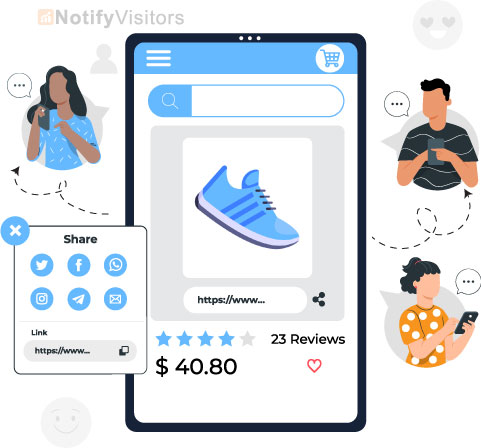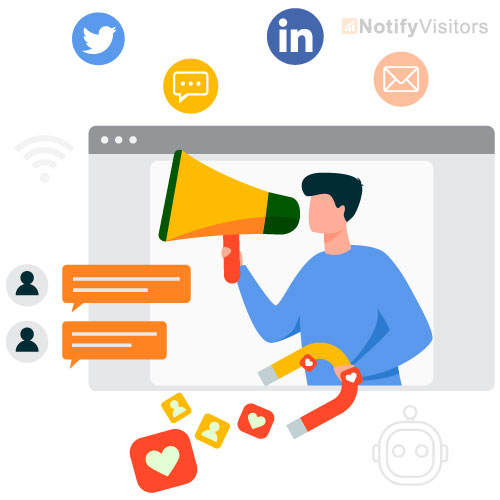A brand is how a product, business, or individual is perceived by the people who experience it. A component – or set of features- differentiates one brand from another. A brand usually consists of a name, design, logo or image, tagline, and brand voice.
For any business owning its brand, its efforts toward the brand are seen by a typical image of the value it gives to clients. These businesses use their resources shrewdly to create a focused and compelling product and offer fit into the consumer’s preferences which finally leads to brand development.
Contents
Who owns the brand?
The lawful proprietor of a brand is, for the most part, the individual or group of people or entity in whose name the registration has been done.
Functionally, brand owning must be the obligation of a company’s management and employees as they are the ones who are constantly working to gain and maintain the value of the brand which it has already built. Brand owning is tied to building and keeping a brand that mirrors your standards and values.
What is brand development?
The brand is what consumers perceive about a company, including its offerings and services. In today’s fiercely competitive market, every player, including the best mobile app development company, strives to deliver on their promises to satisfy their customers’ needs and expectations.
Brand development keeps up with the consistency as far as quality, value, and trust that shopper finds in the organization.
Brand development is a continuous process of developing and improving a brand’s image with clients and ensuring that it aligns with the overall strategy and vision of the organization.
The brand can shape reality. The power of branding to architect customers is why organizations like Amazon and TCS consistently invest vast numbers of dollars.
When you tactfully leverage the ability to architect reality, you’re able to sway consumers’ purchasing behaviour in immeasurably valuable ways. And it happens with every branding sector, whether healthcare, product, services or any other branding case.
Process & Strategies to Improve Brand Identity.
A brand identity consists of what your brand says, what your principle and ethics are, how you communicate your product, and what you want individuals to feel when they interface with your brand, i.e. after the sale.
Eventually, your product impacts your clients long after you’ve made the deal. Brand identity is the most common way of molding that impression.
Developing your brand identity because of your brand values and desires perception is the next step in creating compelling branding strategies and process that includes the plan and creation of your brand visual identity.
The tone and style used in the content and branded design are delivered for various marketing and advertising efforts through offline like printed business cards, or online channels like email newsletters, stores interior, and slogans, official website, social media marketing automation platforms.
Steps to develop your brand identity when the world is constantly changing –
1. Craft a persuasive company message

Branding isn’t about your logo; it’s about your message – what you’re communicating to the world. In the first place, check-in with your values: Does the phrasing and look and feel on your website and social media profiles match your company’s values and principles? Just be true to your messages. Your logo design is vital; it should reflect your brand’s essence without overshadowing your core message.Avoid overstating or inflating your message.
A basic articulation of your identity and what you are great at – shared concisely and obviously – will get the job done to ensure your brand.
2. Decide Your Ideal Communication Channels

Perhaps the primary test to talk about your brand authentically is observing the communication channels that adjust best to your brand and the message you hope to convey.
Now, there are such countless advanced channels that it’s challenging to be all over and work effectively discussing genuinely with your target audience.
For instance, assuming you are a business-to-business (B2B) organization, LinkedIn is a great social media channel, and email marketing is a powerful method for reaching out to your customer.
So it is recommended to find the channels that will resonate with your audience. If a brand type is such that consumers might ask questions frequently, installing conversational chatbot software would be the best option.
3. Talk to your audience.

If you know what your brand’s voice is, you can begin to focus on the effective method to speak with your audience? Think of your brand as a person.
And how would the brand as a ‘Person’ speak? All that you say as a business through your email marketing, tweets, online media updates, and blog posts, should convey this remarkable voice so that the audience can connect with your brand personally.
Find an intelligent way to converse with your audience and keep them intrigued. Be brief, short, and to the point. Talk to your audience as if speaking to someone one-on-one. You can host events, initiate conversations through activities, or include tools like a Twitter Wall to display social media content on digital screens and add a layer of excitement to the conversation.
4. Improve the organization’s culture
Your Culture and work ethic characterize your uniqueness and furnish you with a strategic advantage. Your company’s culture is crucial compared to how individuals “see” your company.
Great brands start brand-building inside their organizations and don’t only come from outside correspondences, for example, logos, PR, and marketing campaigns. If you need a great brand, you should also develop a solid brand-led culture inside your organization.
5. Provide brand extension services
The purpose of branding is to differentiate product and service offerings in the marketplace. Always dare to provide solutions differently to become the leader in the market and enhance your brand identity and development.
Partnering with a marketing automation SAAS company to host self-promoting and marketing of its Unique Selling Propositions for your targeted audience is advisable to improve customer experience and their loyalty to the brand.
All the guests network, rest, and are coached in five-star style, which will be your brand extension.
6. Keep an eye on your brand
In any case, remember that your brand is certainly not a limited-time offer company. To develop and retain market impression and brand goodwill, you need to uncover your image and character continually.
You don’t need to bear the weight of building your market presence all alone. Employing a firm with expertise in building a brand and business can be the best choice for your business. And lessen the business risk by testing your options before launch.
7. Testing and analyzing the brand identity

After getting fair intrinsic value to the brand, it doesn’t mean it should stop doing the different development activities.
To remain competitive, organizations should regularly examine and refine their brand to guarantee it’s delivering on the promises of what the company stands for.
One of the advantages of digital marketing is the capacity to track, target, and test new methodologies and strategies to stay updated and be on-trend.
8. Develop your marketing strategy
Strengthen your brand by evolving your marketing strategy. You think your brand is unique and can evolve in the market, but it is only your strong marketing strategy that will set your brand apart in the industry.
It would be best to have a strong story for your brand, which must be consistent across all marketing channels to stay strong.
Whenever you’ve built your image from the product to the missions, it’s vital to comprehend where your brand falls on the value scale and consistently adjust your marketing strategy to suit further brand development and its long vision.
Each member of the company is liable for fostering a solid brand. It is your obligation as a marketer to impart that worth to the target consumer looking for a strong, high worth brand they want to be a part of.
9. Consider your overall business strategy

A well-differentiated brand will grow your firm a lot simpler. The main question is, what kind of firm do you need? Is it true that you intend to grow organically?
Your general business identity is the context for your brand image, so that is the place to begin. If you are clear about where you need to take your firm, your brand will assist you with arriving.
How to further develop a business branding identity?
Business branding isn’t restricted to logos, slogans, and taglines; however, it reaches out to all parts of a business, including marketing and advertising, client service channels and activities, and any remaining aspects connected with developing and building long term relationships with prospects and clients.
All efforts, time, and costs sacrificed in branding campaigns & activities guided by optimized branding technologies will lead to add exceptional value to your business in many areas, including:
- Increasing awareness about your business and accessible products and services.
- Improving trust and confidence in your business from designated clients
- Increasing clients retention and loyalty rates
- Create more clients through references and word of mouth marketing.
- Creating more opportunities for brand development or brand expansion to take advantage of your brand’s positive image in front of the public.
Conclusion
Brand development is one of the main activities your business can take part in. Building a solid, unmistakable brand will assist you to connect with your current clients, offering new ones, and support loyalty and recognition.
While business branding is tied in with making a positive mark on consumers’ minds and separating your business offerings from the competitors’ alternatives.
Customized data-driven branding strategies are fundamentals for business branding or rebranding processes as they characterize what, how, when, and where you should create, tweak and convey branding messages to develop substantial brand value and ultimately brand development.

























 Email
Email SMS
SMS Whatsapp
Whatsapp Web Push
Web Push App Push
App Push Popups
Popups Channel A/B Testing
Channel A/B Testing  Control groups Analysis
Control groups Analysis Frequency Capping
Frequency Capping Funnel Analysis
Funnel Analysis Cohort Analysis
Cohort Analysis RFM Analysis
RFM Analysis Signup Forms
Signup Forms Surveys
Surveys NPS
NPS Landing pages personalization
Landing pages personalization  Website A/B Testing
Website A/B Testing  PWA/TWA
PWA/TWA Heatmaps
Heatmaps Session Recording
Session Recording Wix
Wix Shopify
Shopify Magento
Magento Woocommerce
Woocommerce eCommerce D2C
eCommerce D2C  Mutual Funds
Mutual Funds Insurance
Insurance Lending
Lending  Recipes
Recipes  Product Updates
Product Updates App Marketplace
App Marketplace Academy
Academy

